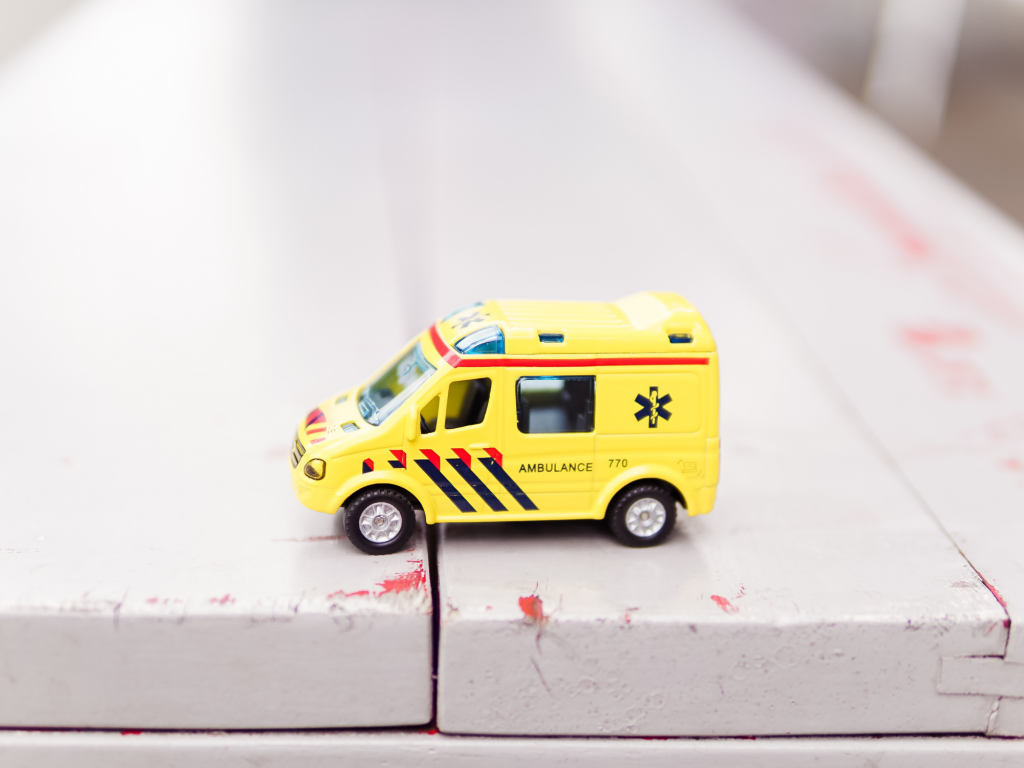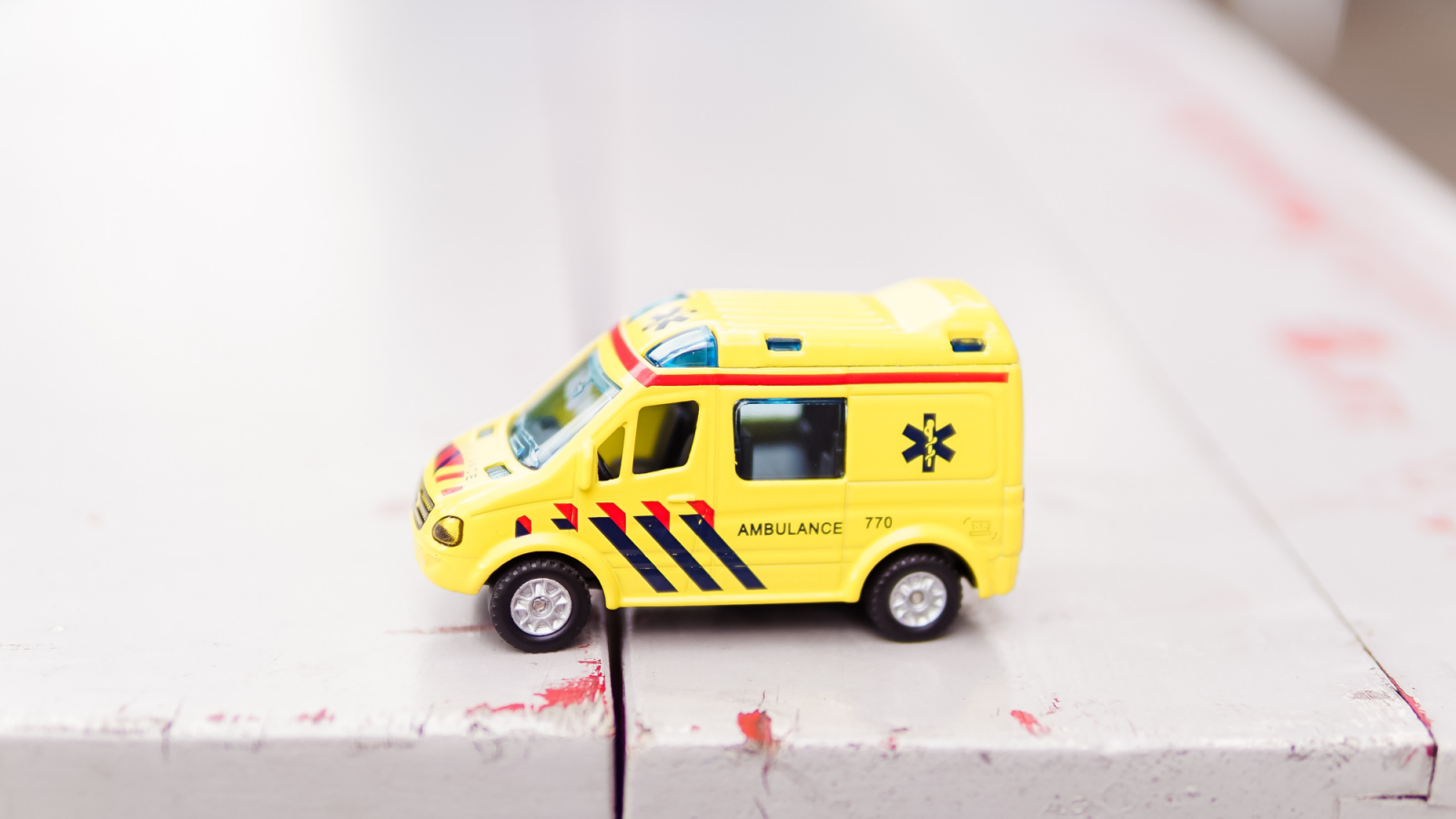Is your back pain an emergency?

Did you wake up today with the worst back pain you’ve ever felt?
Was it a normal day, and then severe back pain started and you don’t know what to do?
In these circumstances you might think the emergency room is the place to go for help.
There are certain pain symptoms that do belong in the emergency department:
- If you have severe pain anywhere, with vomiting, nausea, fever or changes to your consciousness – call an ambulance and get medical care. The medical system is designed to help with symptoms like these.
- If you have had trauma. If you have a fall, a car accident, you hit your head, slipped down the stairs, crashed your bike and you have pain and symptoms like above, you should call an ambulance and make sure you’re safe.
- If you have severe back pain, lose control of your bladder or bowels, and lose power and feeling in your legs, you should also go to the emergency room.
Severe back pain is rarely a medical emergency. Back pain, even with tingling or numbness in your leg, pain that makes you limp, and hurts to sit or stand for long doesn’t belong in the emergency room.

Should you visit the emergency department for back pain?
People with pain expect to leave the emergency department with some relief of their pain, and they are frequently disappointed. Getting good help for chronic pain (or acute flareups of ongoing pain) is not what the ED is designed to do. Even if your back, neck or other pain is severe, there’s only a small chance that it’s a medical emergency.
A checklist for visiting the ED:
- Did you have an accident or trauma?
- Have you been ill or had recent surgery?
- Do you have unsafe practices like IV drug use?
- Do you have unexplained fever?
- Do you have dizziness, nausea or vomiting?
- Are your legs weak, numb or unable to move?
If the answer to these questions is no, even if your back pain is very severe, you probably won’t benefit from an emergency room visit.
Pain in the ED: What to Really Expect
The ED is the place to go when you’re having a medical emergency.
Back pain can hurt a lot. So much, that it can be overwhelming and feel like an emergency. But pack pain is almost never an emergency, and should not be considered one unless it is present with the symptoms described above. Moreover, the emergency department can’t deliver the kind of help that people with back pain need.
If you’re thinking of a trip to the emergency room, you’re probably expecting that you’ll be able to get relief from your pain and have the cause of the pain identified. You expect the doctors there to run certain tests (x-ray, MRI, CT), give you a diagnosis, and then give you a shot or a pill that relieves your pain, at least temporarily.
With all the amazing technology and powerful drugs we have now days, it’s easy to think that all of this is possible, but it’s usually not. And so, people often leave the ED disappointed, with their expectations unmet. We have realized that many of these traditional ways of treating back pain simply don’t work, and sometimes they can even make your pain worse in the long run.
If you have back pain, the best thing the emergency room will be able to do is make sure you don’t have an emergency health condition. Once an emergency is ruled out, some simple education, reassurance, and guidelines for getting moving again are the best help we can give you. Usually, people expect to receive pain relief, and they are often disappointed.
The Doctors that staff the emergency department are trauma experts, not pain management experts. Their job is to save lives, and they do an incredible job under the most stressful and time-pressured situations. Pain, even severe pain, is very significant and should certainly be examined and treated by the right healthcare provider. But pain is rarely a life or death problem.
How Long Will You Sit in the Waiting Room?

The length of the average ED visit for back pain is around 5 hours. Depending on the other cases that come in that day, you may sit for three hours without being seen by a medical provider.
For someone with back pain, sitting for that amount of time feels uncomfortable, worrying and frustrating.
We know pain is increased by fear, worry and uncertainty. If you suspect something bad is going on and no one can reassure you otherwise, it is very hard to relax and move normally. This guarding and compensation is very normal to see in people with back pain, and unfortunately it can cause your pain to feel worse.
Seeking an Explanation: Will You Get Scans and Tests?
If you go to emergency, you may have blood and urine tests, because they’re a good way to rule out anything nasty. They can quickly detect markers that tell doctors if you are fighting an infection, or there’s a significant change to any of the systems that keep you alive, and if that’s why you’re hurting. They are there to rule out an emergency.
People almost always expect that they will get a scan or x-ray. The expectation that these tests will explain your pain, and why it’s severe today is not correct. Unless you’ve had a fall, a car accident, or some other trauma, or there are red flag symptoms present, you likely won’t get scans, and probably won’t gain much from a trip to the ED.
Emergency departments have limited resources, like MRI scanners, and they need to be available for emergencies. If someone comes into the ED with a possible stroke, and the scanner is being used by someone with back pain, there’s a 30-60 minute wait for someone who is in a life and death situation.
What scans and x-rays tell doctors about pain is usually minimal. It’s unusual for someone with back pain to have something that’s found on a scan that changes the treatment and advice we usually give people.
Seeking Relief: Will You Get Pain Medication?

In the emergency room, doctors typically start with prescribing lower level medications. These are similar to the ones you’d buy at the pharmacy. Often, they don’t significantly reduce pain, and patients are disappointed.
Strong pain medications, like opioids and benzodiazepines, have tight restrictions for prescription, and are not routinely prescribed to people with back pain. Research has shown that medication such as opioids and benzodiazepines can be harmful when given as first-line treatments for back pain.
People often leave the ED unhappy because they don’t get any relief or diagnosis for their pain (not only because they don’t get pain medication). Patient review forms from the ED often say “they didn’t do anything for me”.
If there’s no medical emergency, the advice to “stay as active as you can” and to not even get an x-ray doesn’t seem worth 5 hours in the waiting room.
So, What Will the Emergency Room do for Your Pain?
Not much.
You might get some printed advice about back pain, which is often 20 years out of date (we’ve learnt a lot about pain
Remember, emergency room physicians are not experts in pain management and aren’t going to be as up to date on advice for chronic pain.
You’ll also get a bill in the ED.
What Should You Do? Advice from A Physical Therapist
It’s unusual to have a Physical Therapist in the Emergency Department. PT’s are good at listening, explaining pain and helping you to problem solve what to do at home.
When I see people in the ED, this is what I suggest:
- Stay as active as you’re able, walking is a great start
- Know that ups and downs are normal and not worrisome
- Believe you are OK
- Work on breathing and relaxation, especially if you are guarding strongly
- Use exercises, positioning,
self management like heat/ice for symptom relief - If meds are appropriate, use them if you have pain, but they’re not needed if the pain is tolerable
- Progressively increase activity as you are able
- Follow up with a PT
In the absence of trauma or true neurological loss (pooping and peeing yourself, numbness between your legs, legs are giving way underneath you, and an unexplained high temperature) there aren’t many good reasons to go to the emergency room.
Trauma doctors are not trained in pain management, and with the opioid medication situation causing them to prescribe more cautiously than they used to, there is a good chance you will still leave with your pain unchanged.
Keith is a physical therapist with the University of Utah. He treats patients in the orthopedic clinic and also works in the Emergency Department, where he sees patients with a variety of issues including spinal pain, orthopedic injuries, falls, and vertigo. He is involved in research investigating the impact of adding physical therapy services in Emergency, and is working to improve collaboration and pain literacy within his local medical community.



 Pain, Perplexity and Permission Slips: How I got from there to here
Pain, Perplexity and Permission Slips: How I got from there to here

That’s good to know when to go to the emergency room for back pain. I have been having really bad back pain and was wondering what to do about it. I’ll have to take a look at another way to reduce my back pain.
On the check on the checklist at the top of this page for reasons to go to the emergency room one of the answers is unsafe practice like IV drug use. what would that have to do with going to the emergency room for sciatic nerve?
That’s a good question Jesse. It’s because IV drug use can cause infection, which in rare cases may work its way into the spine and cause spinal infection. This can be quite dangerous and so severe back pain in someone with a history of IV drug use should be looked at by a physician promptly.
This article came off kind of harsh, especially for someone suffering with extreme back pain and difficulty walking weeks after injury. It’s basically saying to help yourself for weeks at a time until maybe it might get better on its own. I’ve also read and watched a lot of videos about physiotherapy not really doing much to help a severe herniated desk. If you can’t even wipe yourself when you go to the washroom some kind of more emergency type care is needed at least in the acute stage so that a person is able to function at the bare minimum. If I lived alone I would not be able to do anything. This article felt very negative and made me slightly angry that such bad back pain is expected to be tolerated to such a high-level. Super disappointing article since you didn’t provide many other solutions. I don’t really care for a response since I’m sure it will be just as negative or minimizing of the pain or situation of having a badly herniated disc. Who is supposed to help you if you don’t have a family doctor? What is a walk-in clinic or urgent care centre going to do for you? Where else is there left to go but a hospital when you need immediate care and someone who knows what they’re doing? I don’t think people should be left to treat back pain on their own especially if it is extreme and the only other option shouldn’t be going to a physiotherapist especially if you have no one to refer you.
Hi Nicole,
Thank you so much for taking the time both to read, and to comment on this post on PainChats.
I think it’s probably really hard to read this post when you’re hurting and you do need help. Good help for pain is hard to get.
I wish that you could go to the emergency room and get help, and that back pain didn’t hurt as much as it does. I wish there was better ways to help you live your life well, and that the solutions for people in pain were as easy as something that could be “done” to take away pain.
Pain can last for many weeks after an injury, especially if it’s particularly severe, interrupting your life a lot and gets you angry and worried about it. Pain is meant to be a scary feeling, and that worry about it is also a reason that it persists.
Pain doesn’t accurately tell you damaged your body is, but lots of pain does indicate that your nervous system is quite sensitive, and that can happen for many, many reasons unrelated to an injury.
Pain is complex, and really hard to write an article about that can be specific – all pain is real, and different for each person.
It’s hard to put words to pain, or to give you a step-by-step guide – especially when it’s new information that could be different to the things you’re used to hearing about pain and damage.
You might not want to read anything more from us, but if you do, these could be helpful too:
https://painchats.com/dim-sim-therapy-for-pain/
https://painchats.com/chronic-pain-self-compassion/
https://painchats.com/pain-perplexity-and-permission/
Learning about pain, self-management strategies and getting back to activities that are important to you are the path out of pain, as we know from the people that successfully recover, and it’s not an easy path.
Acute disc injury pain is the worst, I had it myself and it took a year to recover. I treat and coach a lot of people that have them, and this stage of high pain and disability is incredibly hard. There’s a trust and a patience that’s difficult to muster, and I struggled with it too, and I know a fair bit about pain. You’re not alone in this, although the experience of pain does feel very lonely.
Staying open to new information and possibilities is important – and many doctors don’t know a lot about the science of pain that tells us that drugs, surgery and invasive procedures are not a helpful path to take for pain.
I thought you deserved an answer, given the effort that you put into your response, and I hope you can read it with the same care and recognition of the struggle as I am putting into this response.
I’m happy to keep chatting with you and answer any more questions that you have, Nicole.
Lissanthea Taylor
Physiotherapist and Founding Editor, PainChats.
A very “to the point” article but so true on the ER especially on long waits and dissapointing outcomes. Been there dun that with abdominal pain and left the ER with ho hum answers and use heat or ice and take over the counter pain meds! Being hit by a car on my motorcycle was a prime example of trauma team saving my life before running out of blood. 5 surgeries later for a compound tibial fracture I learned a lot about the value of the ER and specialists. My back pain this morning was due to a dumb lift two days ago and heavy coughing made it very sore and I did actually consider 911 then your article got me thinking about not being a wimp and just deal with heat and ice and quit worrying, the body heals well over time so grinn and bear it!